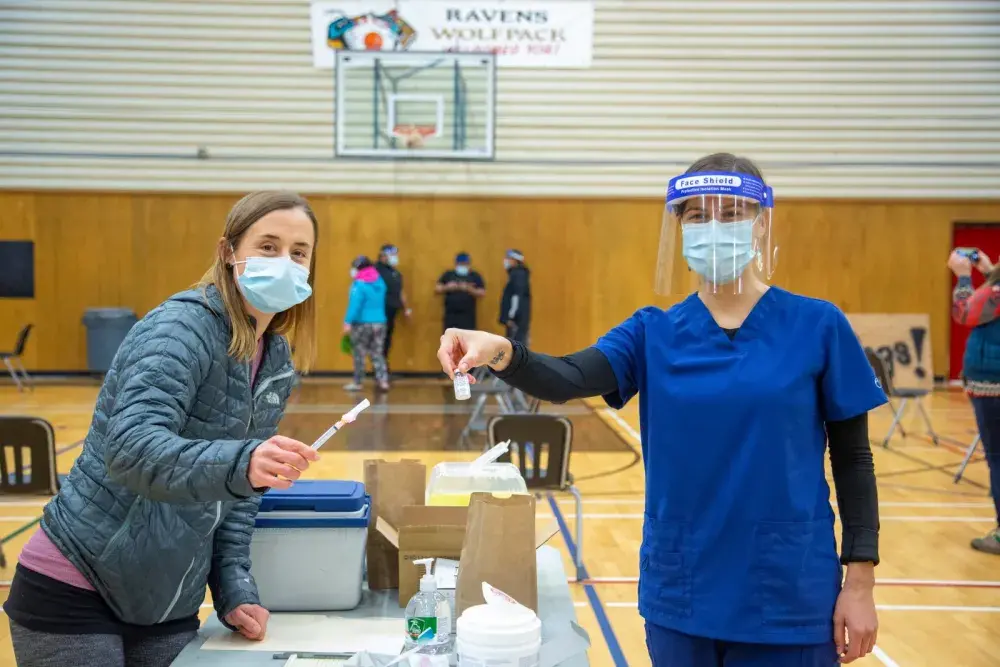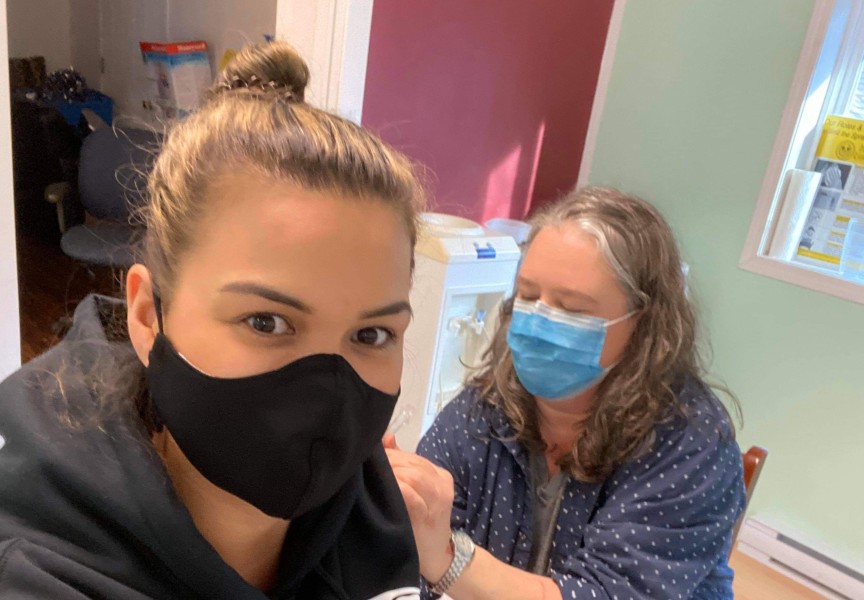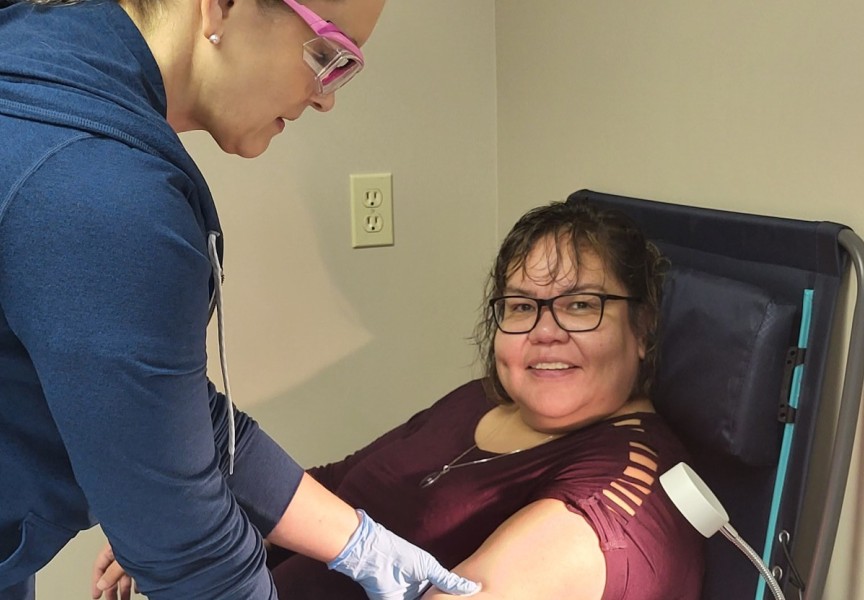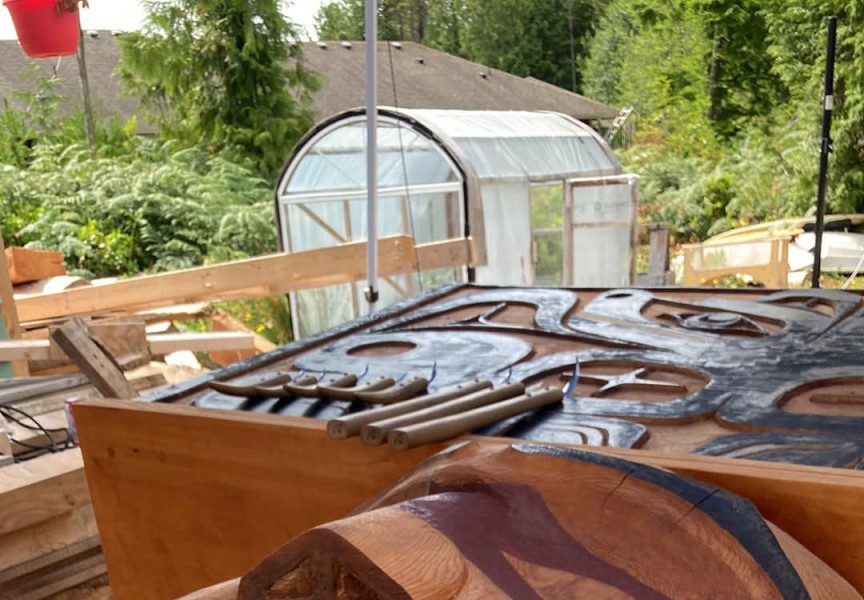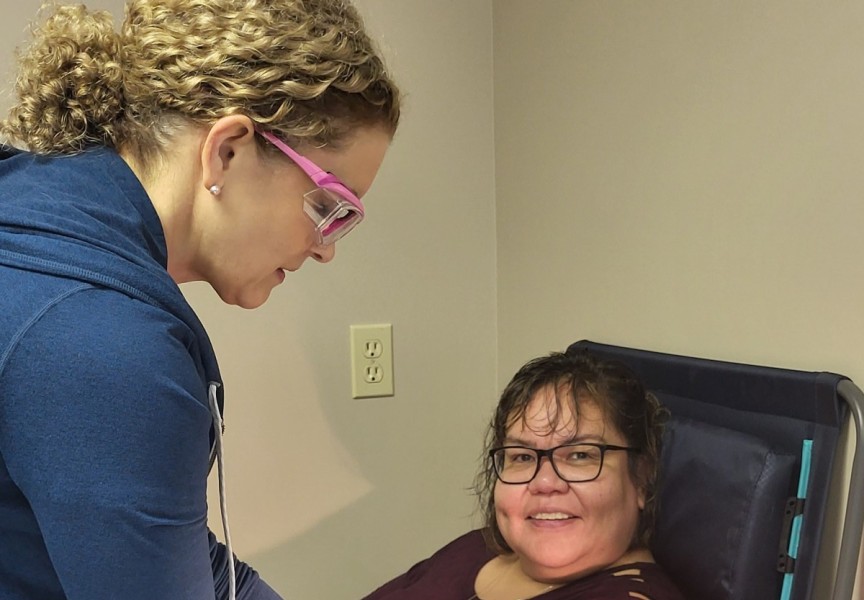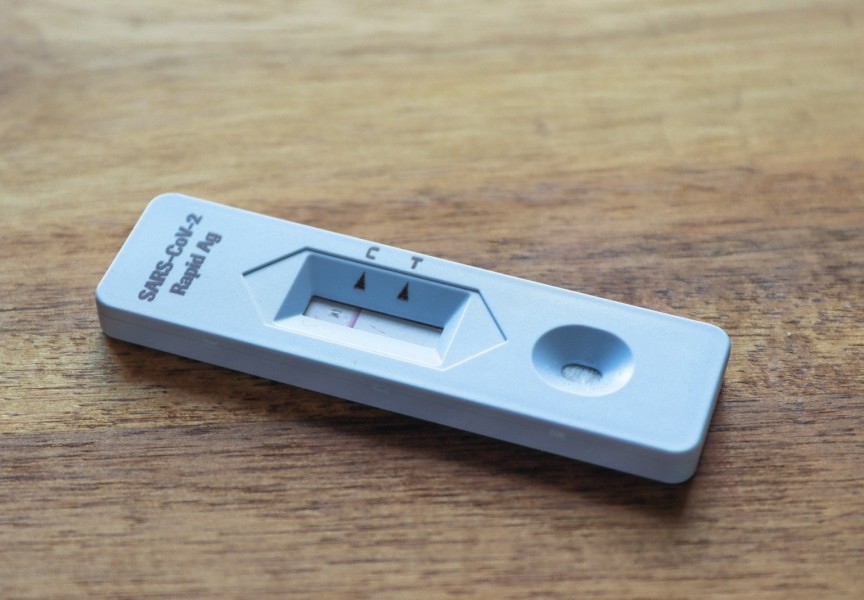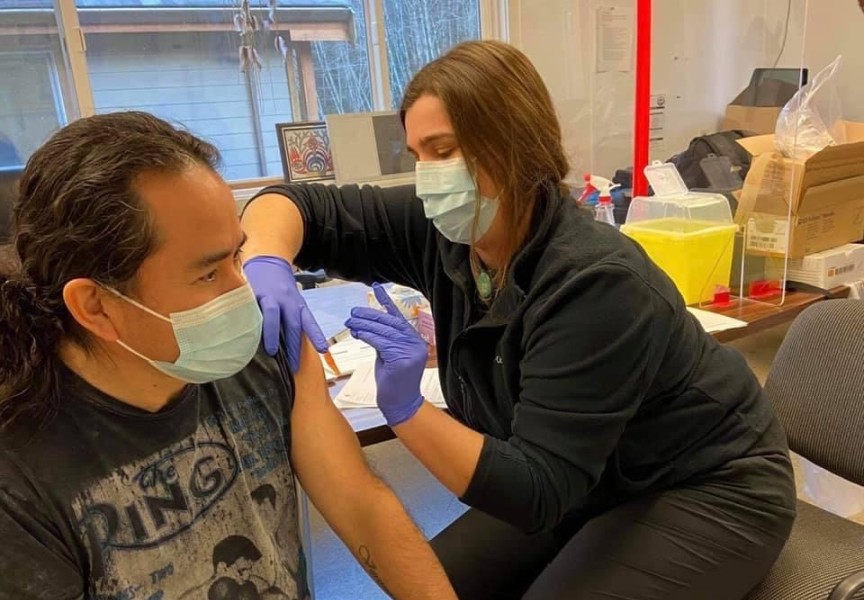It has been nearly 50 days since the province began the roll-out of COVID-19 vaccine to Indigenous communities and FNHA is reporting that 16,000 units have been administered – mostly first shots.
According to FNHA Vice-President, Public Heath Response Team, Katie Hughes, 16,000 units of vaccine have been administered on reserve with an additional 3,000 doses delivered to Indigenous people in urban centers, such as Vancouver. She said that FNHA is working with provincial health authorities to get vaccination clinics to places like the Vancouver Aboriginal Friendship Centre and in downtown shelters.
Dr. Shannon McDonald, FNHA’s acting chief medical officer, noted that there was a post-holiday season spike of cases at Indigenous communities in the first half of January 2021.
“There were 1,000 active cases at the time, and we’ve suffered some loses,” she added.
McDonald went on to say that some communities were dealing with cluster cases, but some of those are resolving.
As of Friday Feb. 12, there were 426 active cases among the Aboriginal population in B.C. with 185 of those infections being on reserve.
There is a vaccine shortage in the province and health officials were concerned that they may not meet the provincial government’s goal of inoculating all willing adults in B.C.’s 203 Indigenous communities by the end of March.
On Vancouver Island, 16 Indigenous communities have received first doses of the vaccine. Innoculation started in another five locations on Vancouver Island, but there weren’t enough doses for all willing adults.
“Five (communities) are partially done and there’s 30 more left to do,” said Hughes. Dr. McDonald noted that bad weather in the second week of February has hampered delivery of vaccine to some communities.
McDonald says that the Ministry of Health remains committed to prioritizing Indigenous communities for the vaccine. She noted that FNHA is using all doses it has received.
Hugues says the vaccine has reached more than 90 Indigenous communities in the province to date with another dozen or so communities hosting clinics in the coming days.
Health authorities hope to have updated information in the next month about vaccine availability and clinics for Aboriginal people living away from home.
According to FNHA, it will take 42,000 first doses to cover all willing people over the age of 18 in B.C. First Nations communities.
Dr. McDonald stated that Indigenous communities are raising concerns about emerging COVID-19 variants, but have no information that any of the different strains of the highly infectious disease have reached First Nations. She noted that provincial health authorities carry out testing for variants and have not indicated that the new strains are affecting Indigenous communities at this point.
Dr. Nel Wieman, FNHA’s acting deputy chief medical officer, noted that the prolonged pandemic, the uncertainty and social isolation has created stress in the communities.
“The vaccine roll-out is creating a new set of stressors,” she said, adding that people are wondering when it will be their turn for the vaccine or asking if the vaccine is even safe.
She said that the FNHA is working hard to build confidence in the safety of the vaccine.
“It (vaccine) is the best way to stay safe,” she added.
FNHA and Indigenous leaders are also hearing from people living off-reserve asking to go home to be vaccinated. Not only is this not permitted due to the shortage of vaccine, but it is not safe. Health authorities are asking people not to travel during pandemic to avoid risk of spreading the virus.
In the year since the pandemic started, 68 Indigenous people in British Columbia have died of COVID-19. More than half, 38 deaths, were people living on-reserve.
“We grieve with the families and our hearts go out to them,” said Wieman.

